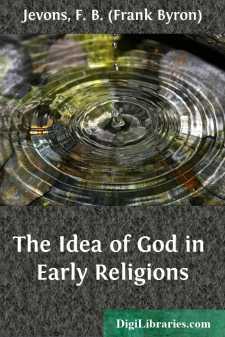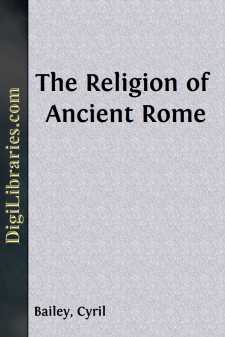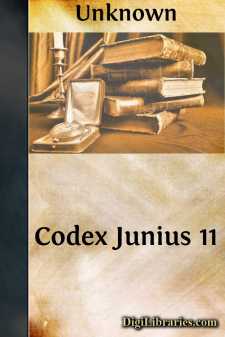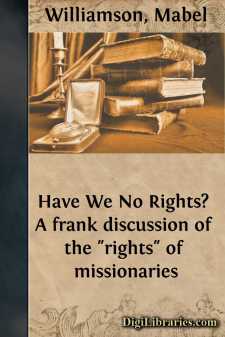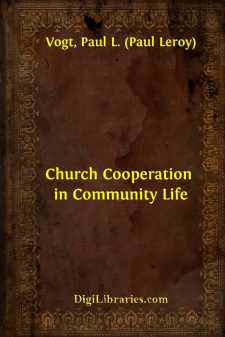Religion
- Agnosticism 2
- Antiquities & Archaeology 21
- Atheism 12
- Biblical Criticism & Interpretation 15
- Biblical Meditations 3
- Biblical Reference 1
- Biblical Studies 11
- Buddhism 8
- Christian Church 52
- Christian Education 5
- Christian Life 26
- Christianity 60
- Cults 2
- Devotional 6
- Eastern 2
- Education 4
- Eschatology 1
- Ethics 3
- General
- Gnosticism 1
- Hinduism 15
- History 28
- Holidays 10
- Inspirational 1
- Islam 8
- Judaism 3
- Leadership 1
- Meditations 3
- Monasticism 1
- Mysticism 11
- Philosophy 4
- Prayer 26
- Prayerbooks 5
- Religion & Science 12
- Sermons 54
- Spirituality 53
- Theism 2
- Theology 17
- Theosophy 15
General Books
Sort by:
Every child that is born is born of a community and into a community, which existed before his birth and will continue to exist after his death. He learns to speak the language which the community spoke before he was born, and which the community will continue to speak after he has gone. In learning the language he acquires not only words but ideas; and the words and ideas he acquires, the thoughts he...
more...
by:
Cyril Bailey
CHAPTER I INTRODUCTION—SOURCES AND SCOPE The conditions of our knowledge of the native religion of early Rome may perhaps be best illustrated by a parallel from Roman archæology. The visitor to the Roman Forum at the present day, if he wishes to reconstruct in imagination the Forum of the early Republic, must not merely 'think away' many strata of later buildings, but, we are told, must...
more...
I. INTRODUCTION. [DECEMBER, 1874] If the author of Supernatural Religion [Footnote 1:1] designed, by withholding his name, to stimulate public curiosity and thus to extend the circulation of his work, he has certainly not been disappointed in his hope. When the rumour once got abroad, that it proceeded from the pen of a learned and venerable prelate, the success of the book was secured. For this rumour...
more...
INDIA'S UNREST India has been called the land of quiet repose, content to remain anchored to the hoary past, and proud of her immobility. Invasion after invasion has swept over her; but—"The East bowed low before the blast,In patient, deep disdain;She let the legions thunder past,And plunged in thought again." Yet this same India is now throbbing with discontent, and is breathing, in all...
more...
CHAPTER I. CHRIST'S WORDS. All who really love Christ love His words. They may not always fully understand their meaning, but they never reject any of them. The very fact that any word has been on the lips of Christ and received His sanction, gives it a sound of music to all who are truly disciples of the Nazarene. MOTHER'S WORDS. The words that your mother used frequently—are there any...
more...
by:
Unknown
LIBER I (ll. 1-28) Right is it that we praise the King of heaven, the Lord of hosts, and love Him with all our hearts. For He is great in power, the Source of all created things, the Lord Almighty. Never hath He known beginning, neither cometh an end of His eternal glory. Ever in majesty He reigneth over celestial thrones; in righteousness and strength He keepeth the courts of heaven which were...
more...
INTRODUCTION "If thou hast the right, O Erin,to a champion of battle to aid theethou hast the head of a hundredthousand, Declan of Ardmore"(Martyrology of Oengus). Five miles or less to the east of Youghal Harbour, on the southern Irish coast, a short, rocky and rather elevated promontory juts, with a south-easterly trend, into the ocean [about 51 deg. 57 min. N / 7 deg. 43 min. W]. Maps and...
more...
by:
Mabel Williamson
Rights "Well," said mother, setting down a cup she had just wiped, and picking up another, "the older I get, and the older my children get, the more I realize how little right a person has even to her own children. By the time they get—well—into high school they aren't yours any more." "But, Mother," I protested, dropping a dripping dishcloth into the dishpan and...
more...
PREFACE Many books have been written during the past few years on the rural church. Some of these have given excellent concrete illustrations of methods that are proving successful in solving local problems. Others have discussed the general rural church situation. The rural life movement, however, has been so rapid that it is believed that a brief restatement of the place of the church in the rural...
more...
by:
J. A. MacCulloch
CHAPTER I. INTRODUCTORY. To summon a dead religion from its forgotten grave and to make it tell its story, would require an enchanter's wand. Other old faiths, of Egypt, Babylon, Greece, Rome, are known to us. But in their case liturgies, myths, theogonies, theologies, and the accessories of cult, remain to yield their report of the outward form of human belief and aspiration. How scanty, on the...
more...


